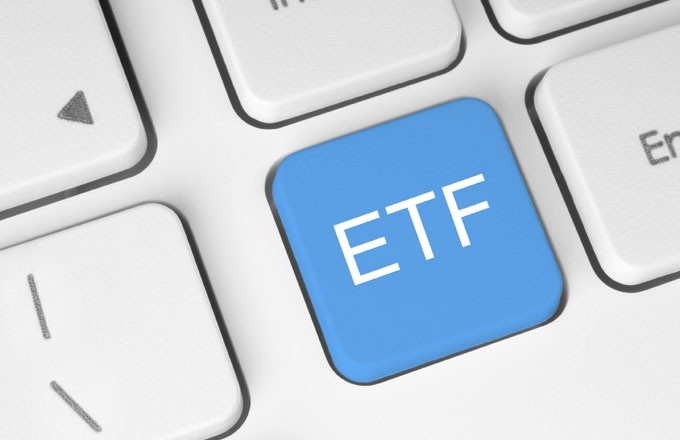How smart is your ETF
Post on: 18 Апрель, 2015 No Comment

‘Don’t follow the crowd for the sake of it.’
Ingé Lamprecht | @Moneyweb  | 29 August 2014 00:57
JOHANNESBURG The international market for smart beta exchange-traded funds (ETFs) have seen record inflows in recent years, despite criticism that these funds may result in higher costs, more risk and prolonged periods of underperformance.
Smart or strategic beta ETFs generally track indices that are not constructed by market capitalisation and typically attempt to capture performance by focusing on a specific investment strategy. This could include reducing volatility (by following a low volatility index), capturing dividend payouts, investing in small caps or various other types of approaches.
While South Africa arguably still lags behind the curve, a number of these funds have been launched, although they may not have been explicitly marketed as smart or strategic beta funds.
Speaking to Moneyweb about international trends in this area, Tim Parsons, director and investment strategist at global investment management company BlackRock, said around five or six years ago, the company, which manages just short of $4.6 trillion in client assets, had very little assets in the strategic beta space. This has since grown to assets of more than $60 billion across the business.
So we are seeing a lot of investors take up strategic beta and I think to be honest our competitors are also.
Parsons says strategic beta is an active deviation away from a market capitalisation weighted benchmark and while it is not necessarily new, it allows investors to insource some of the decisions they have previously outsourced to an active manager through a relatively low-cost indexation process.
He says inflows to strategic beta funds have grown out of investor interest in getting a better risk-adjusted return. A lot of these strategies have back tested well and were the result of a couple of bad market outcomes such as the tech bubble of 2000/2001 and the credit crisis and stock market decline of 2008/2009.
Many index providers and investors were looking for a way to run an indexing strategy that would have avoided some of the very high peaks and some of the significant troughs to deliver a better risk-adjusted return.
People arent necessarily going into it because they want performance, they are going into it because they just dont like how the existing benchmark is constructed.
While the growth in strategic beta funds have been significant, international critics say these funds can underperform for long periods of time, that it is more costly and that investors take on more risk.
Parsons says some investors argue that strategic beta strategies provide them with low-cost exposure to risk factors that they might have historically been exposed to through an active manager.
It would however still cost more than a passive, cap-weighted index tracker due to higher index licensing fees in the strategic beta space than cap-weighted licensing fees, he says.
Annual or quarterly rebalances in the strategic beta benchmarks can be significantly higher than the annual turnover of a cap-weighted benchmark, which will also result in additional costs.
Parsons says some strategic beta strategies are less risky than their cap-weighted counterparts and some are more risky (in volatility terms).
If you measure the volatility of a fundamental weighted strategy, it will tend to be a little bit higher in volatility terms than its cap-weighted counterpart, not hugely, but it will be a little bit higher and I think to a certain degree thats reflective of its value bias.
And certainly small caps can be more volatile than capweighting, but the idea is that you would expect to be compensated for the higher risk.
However, other strategic beta strategies such as low or minimum volatility are less volatile than the market cap-weighted index, which might be a little bit more appealing to the shell-shocked and the risk averse, he says.
The local situation
Mike Brown, managing director of etfSA, says at the end of June this year the total market cap of ETFs exceeded R100 billion for the first time.
While no official numbers are available, he estimates that smart beta only accounts for between 5% tot 10% of the market.
Like elsewhere in the world, the brunt of ETF funds is invested in the big market cap-type ETFs. Dividend funds are probably the notable exception.
Brown says smart beta ETFs can be a bit more costly. The big advantage of a market cap index is that it includes large companies and there are no liquidity issues.
Once investors start being more selective they could start running into the cost structures similar to those of active managers.
Brown says smart beta ETFs are becoming more complex. While some of the funds are very transparent, others arent.
So we will have to wait and see how it develops. Theres certain schools of thought that say this is great, theres other schools of thought that say this is just a fashion it will disappear, Brown says.
From a South African point of view it does indicate that the industry is maturing a bit and that investors are considering various options, he says.
Ultimately, investors have to consider which problem they are trying to solve in their portfolios.
Parsons says this problem may be a performance problem or a volatility problem for example.
But investors should refrain from thinking that they will be better off by investing in strategic beta funds, full stop.
It is really not as simple as that and I dont think investors should just be following the crowd for the sake of following the crowd, Parsons says.














